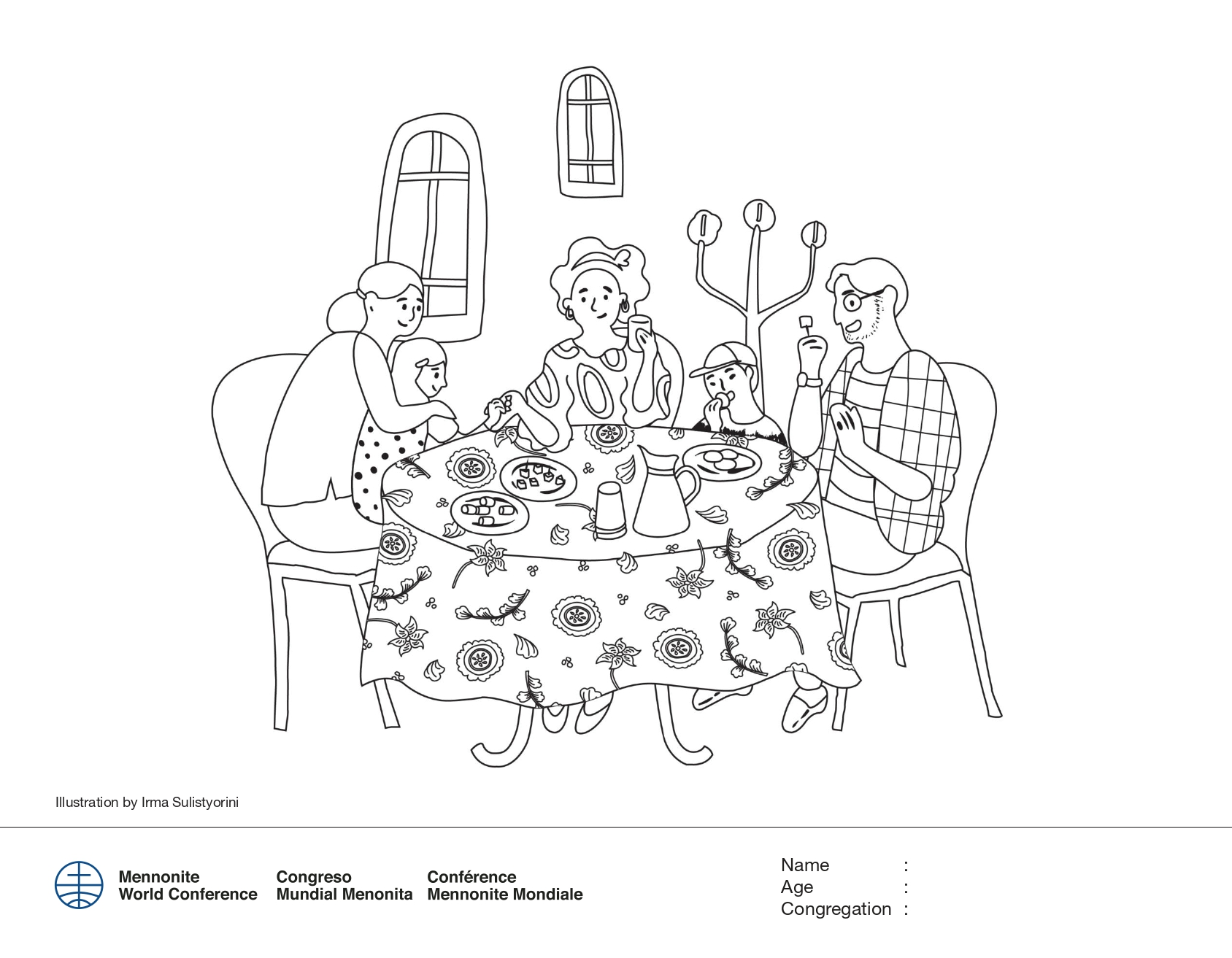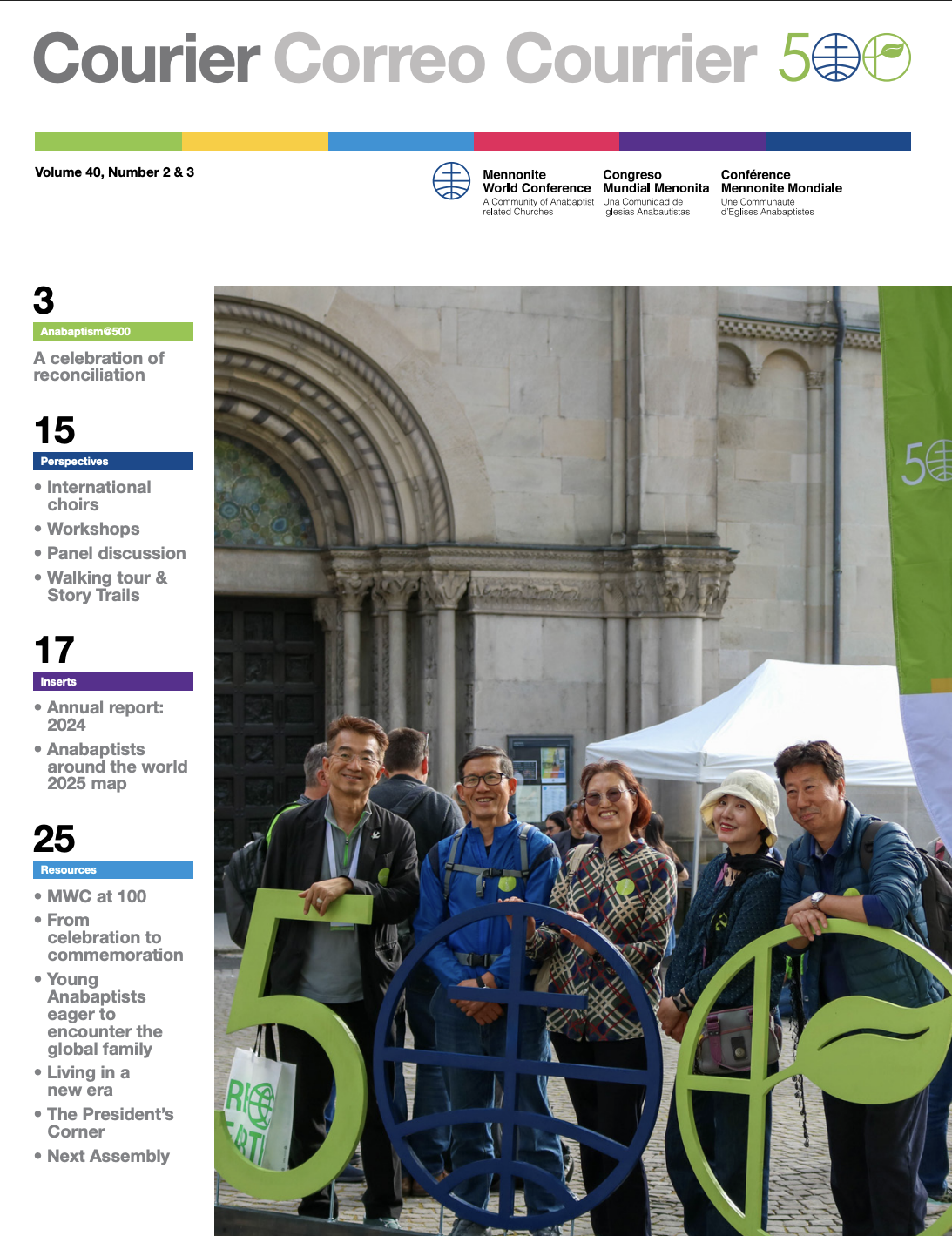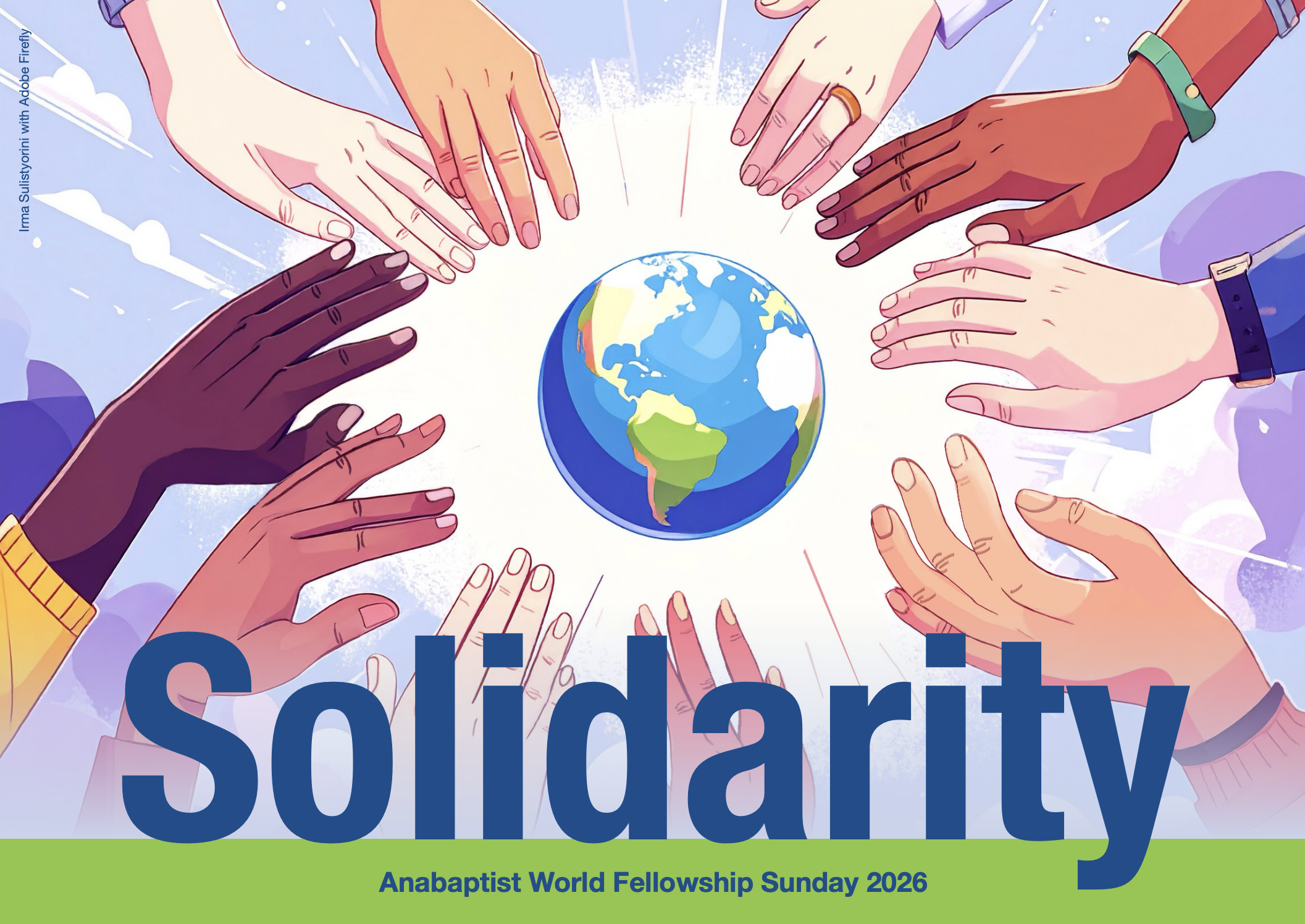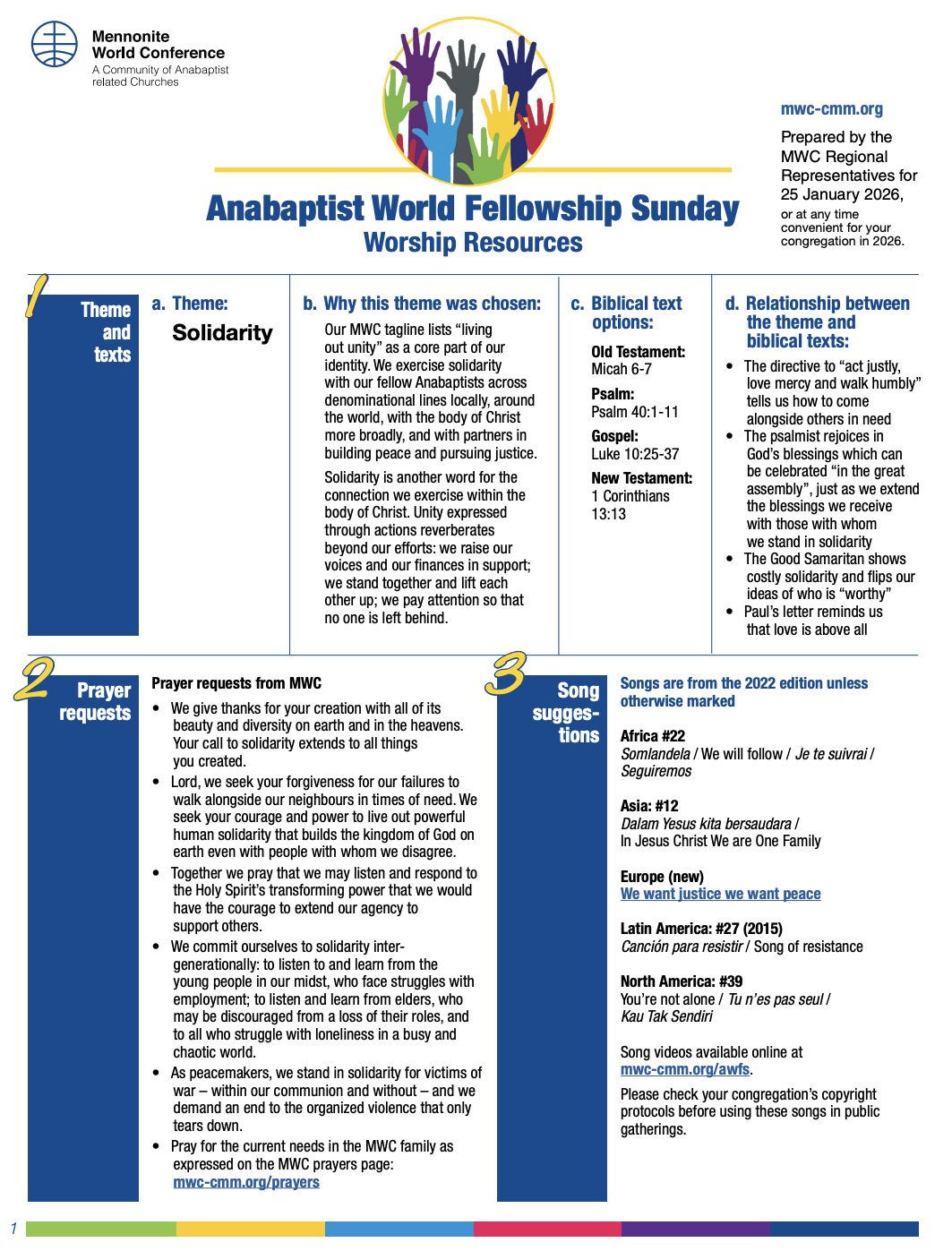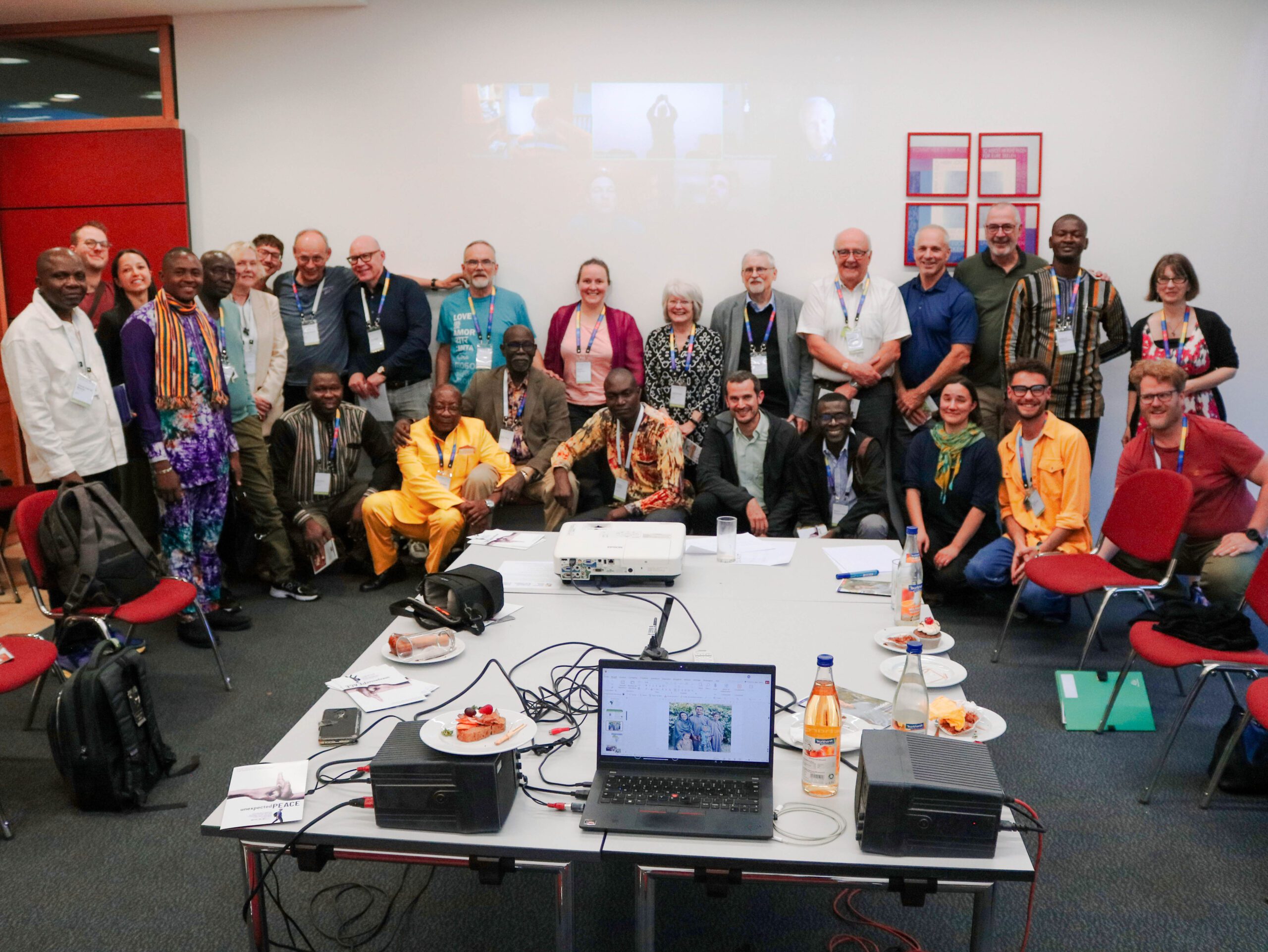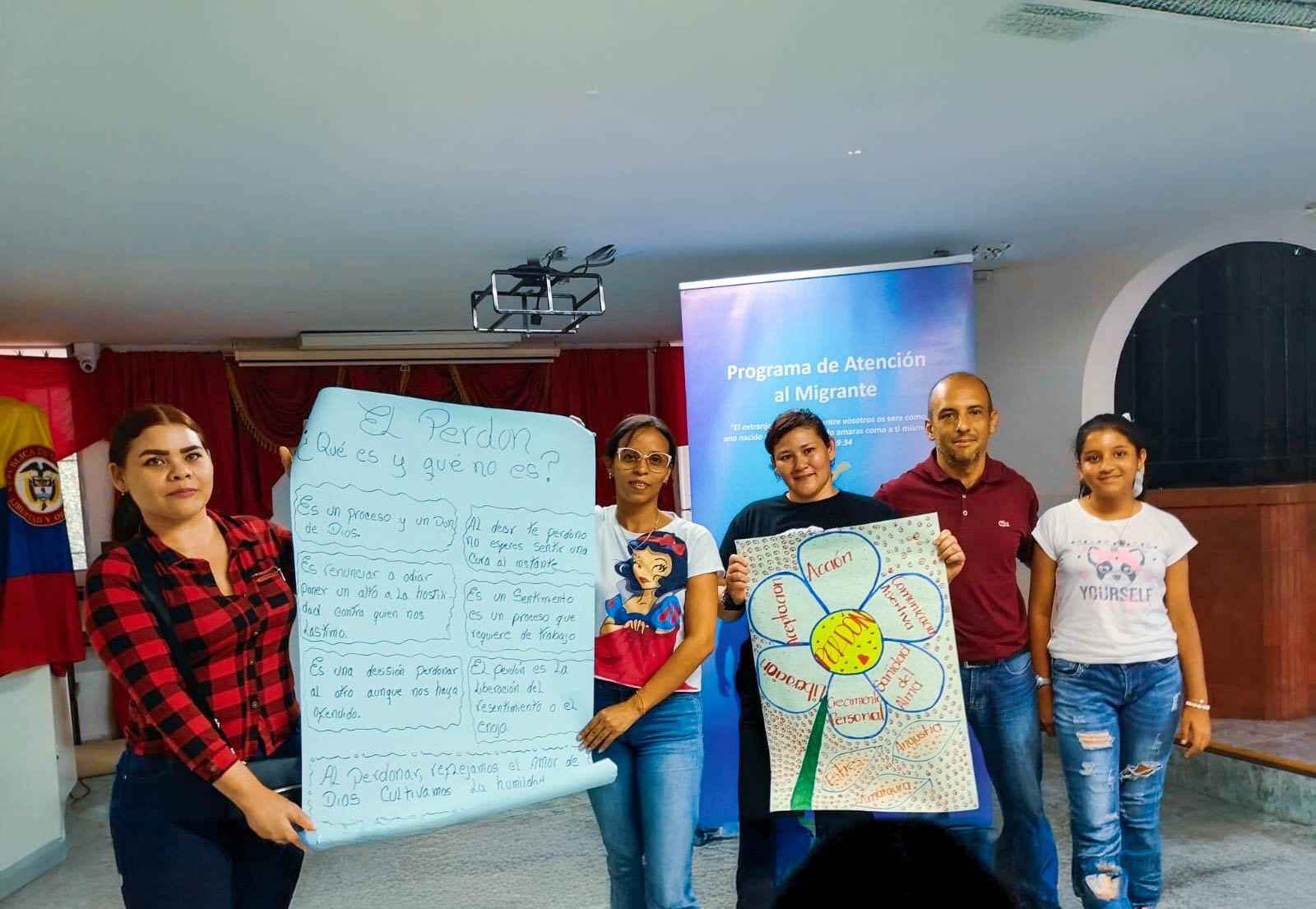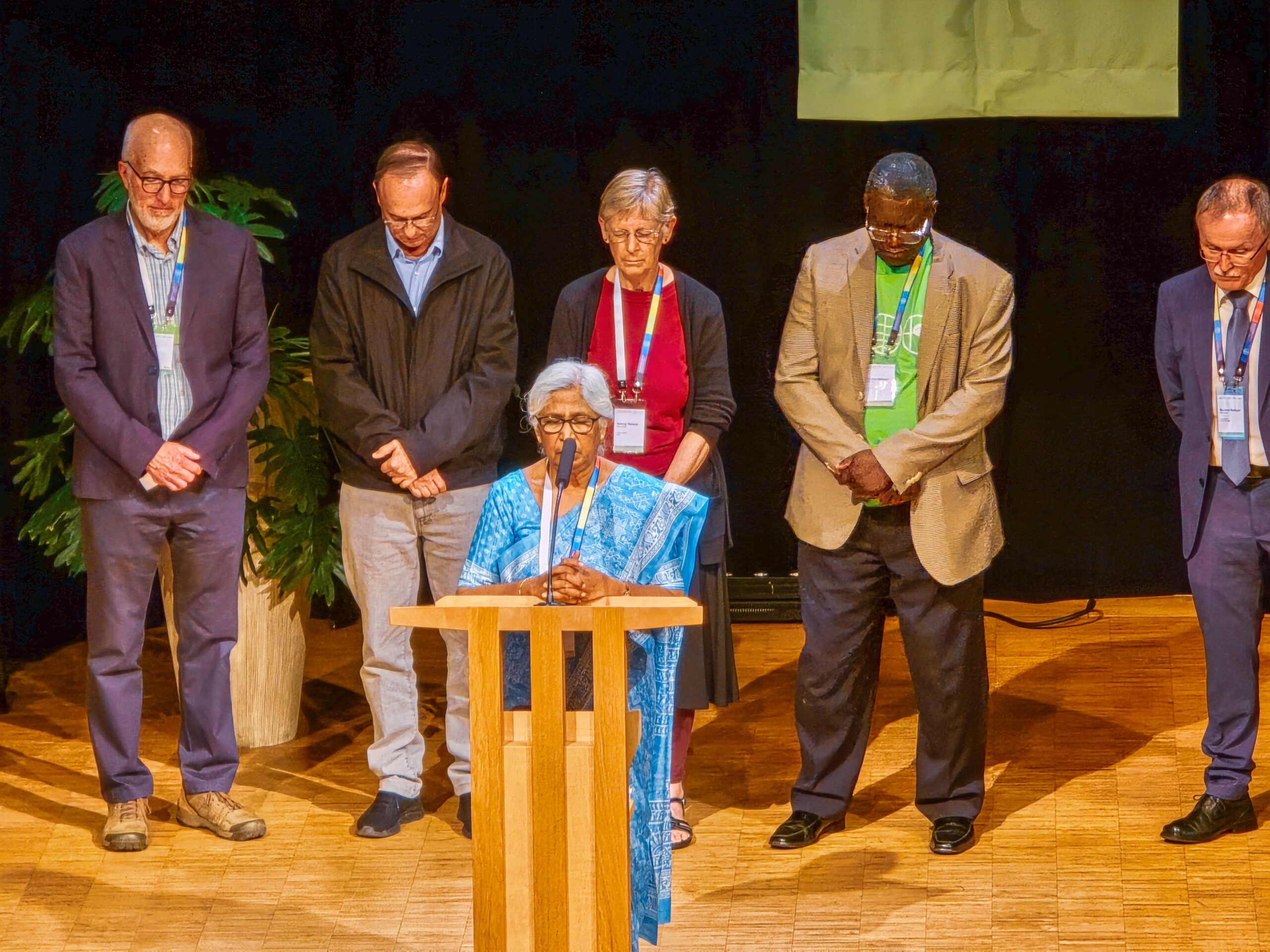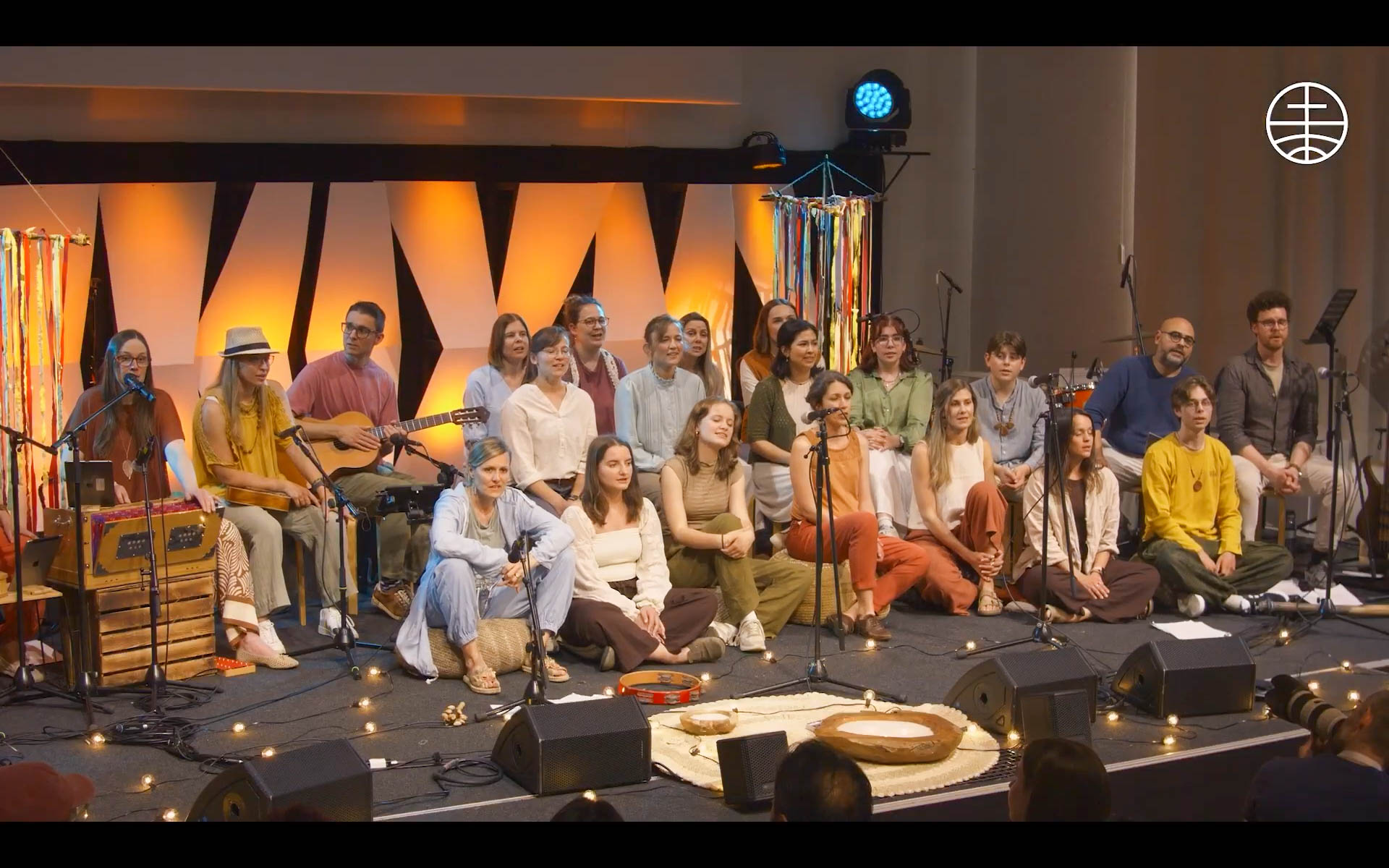-
Global Anabaptist Forebears
A new biography-based history series “We need a new generation of textbooks… We could gather around these stories in church groups, in seminary classrooms, around campfires. It’s a process of…realizing that many of our forebears in faith come from other continents… We need to recognize them as kin.” Anicka Fast, series editor Many Anabaptists live
-
Year in Review 2025
“We are an extremely small group in a global context. But we Anabaptist churches have a lot to share and a lot to contribute to other Christian groups and societies around the world.” Elke & Philipp Horsche
-
Courier 2025 / 40.2-3
This issue of Courier is a taste of the 500th anniversary Inspired by Zwingli’s famous invocation to “do something courageous!”, MWC gave the theme “The Courage to Love” to our 500th anniversary year. We marked it with a registration-free event in the streets of Zurich, Switzerland, on Ascension Day, 29 May 2025. It’s also the
-
Anabaptist World Fellowship Sunday 2026
Theme Solidarity Why this theme was chosen Our MWC tagline lists “living out unity” as a core part of our identity. We exercise solidarity with our fellow Anabaptists across denominational lines locally, around the world, with the body of Christ more broadly, and with partners in building peace and pursuing justice. Solidarity is another word
-
A weekend of prayer and action against hunger 2025
Liturgy Guide and Resources for the Weekend of Prayer and Action Against Hunger 17-19 October 2025. For this Weekend of Prayer and Action Against Hunger, Christians from all around the world will gather for prayer and worship around the theme of global hunger and food justice. We offer this guide to support worship planners to
-
Peace Sunday 2025 – Activities
Who is our neighbour? What is the gospel? Enact “Samarital Acts” (Luke 10:25-37) in the community OR Explore the meaning of “gospel” in the story and notice the different practical ways in which it is embodied in Luke 4. 1. Create multi-generational groups to explore the assignment together over four weeks. 2. Within the groups,
-
Peace Sunday 2025 – Prayers and Liturgies
Prayers and Liturgies A litany for the moment Responsive reading: one voice for the regular text, all voices for the bold text. All voices join on bold and italic text. God of surprising birth You are not the saviour we expect, Your power does not look like the power We want our God to demonstrate. We wait. We
-
Peace Sunday 2025 – Song Information
We want peace “We Want Peace” isn’t just a song title. It’s a call. A prayer. And a mission. We wrote this song because we don’t believe that violence can be the solution to our problems. “War is Contrary to the Will of God”, wrote the World Council of Churches in 1948 after the end
